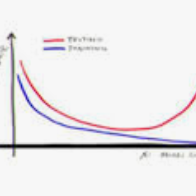Domain generalization is a challenging problem in machine learning, where the goal is to train a model that can generalize well to unseen target domains without prior knowledge of these domains. Despite the recent success of deep neural networks, there remains a lack of effective methods for domain generalization using vision transformers. In this paper, we propose a novel domain generalization technique called Robust Representation Learning with Self-Distillation (RRLD) that utilizes a combination of i) intermediate-block self-distillation and ii) augmentation-guided self-distillation to improve the generalization capabilities of transformer-based models on unseen domains. This approach enables the network to learn robust and general features that are invariant to different augmentations and domain shifts while effectively mitigating overfitting to source domains. To evaluate the effectiveness of our proposed method, we perform extensive experiments on PACS [1] and OfficeHome [2] benchmark datasets, as well as a real-world wafer semiconductor defect dataset [3]. Our results demonstrate that RRLD achieves robust and accurate generalization performance. We observe an improvement in the range of 0.3% to 2.3% over the state-of-the-art on the three datasets.
翻译:在机器学习中,广域化是一个具有挑战性的问题,在机器学习中,目标是训练一种模型,在不事先了解这些域的情况下,能够向看不见的目标领域广泛推广。尽管深神经网络最近取得了成功,但是仍然缺乏使用视觉变压器进行全域化的有效方法。在本文件中,我们提议了一种新型的广域化技术,称为 " 自我蒸馏的机械化代表制学习(RRLD) " (RRLD),它利用了各种组合(i) 中间块自我蒸馏和(ii) 增强制导自我蒸馏,以提高基于变压器的无形域模型的全域化能力。这个方法使网络能够学习不易于不同扩增和域变换的强性和一般性特征,同时有效地减轻对源域的过度适应。为了评估我们拟议方法的有效性,我们对PACS[1]和OfficeHome(2)基准数据集进行了广泛的实验,以及真实世界的瓦费尔半导体缺陷数据集[3]。我们的结果显示,RLD取得了可靠和准确的普及性性表现。我们观察到,在三个数据设置方面有0.3%到2.3%的改进了0.3%到2.3%的范围。




